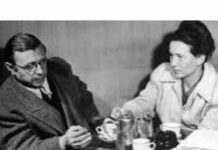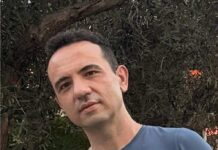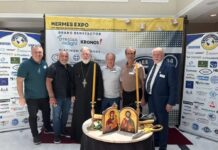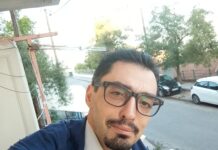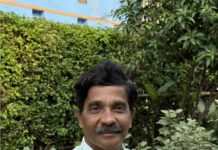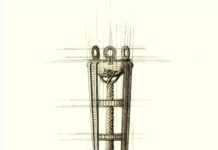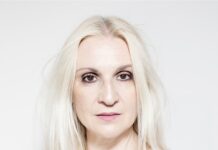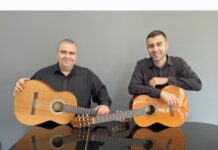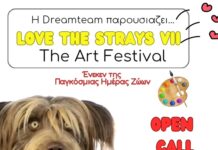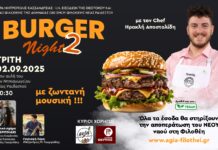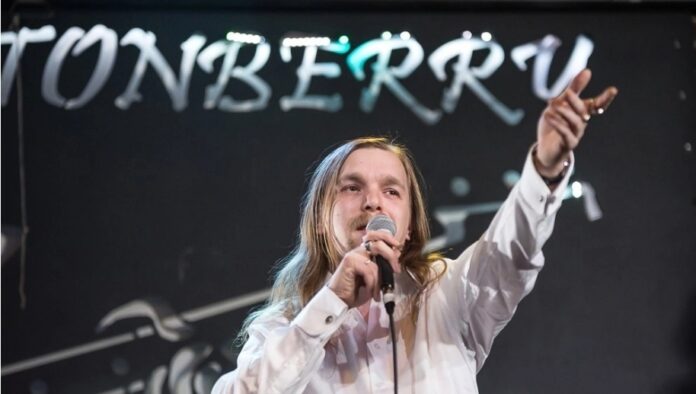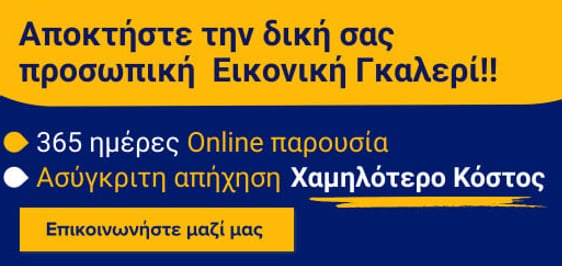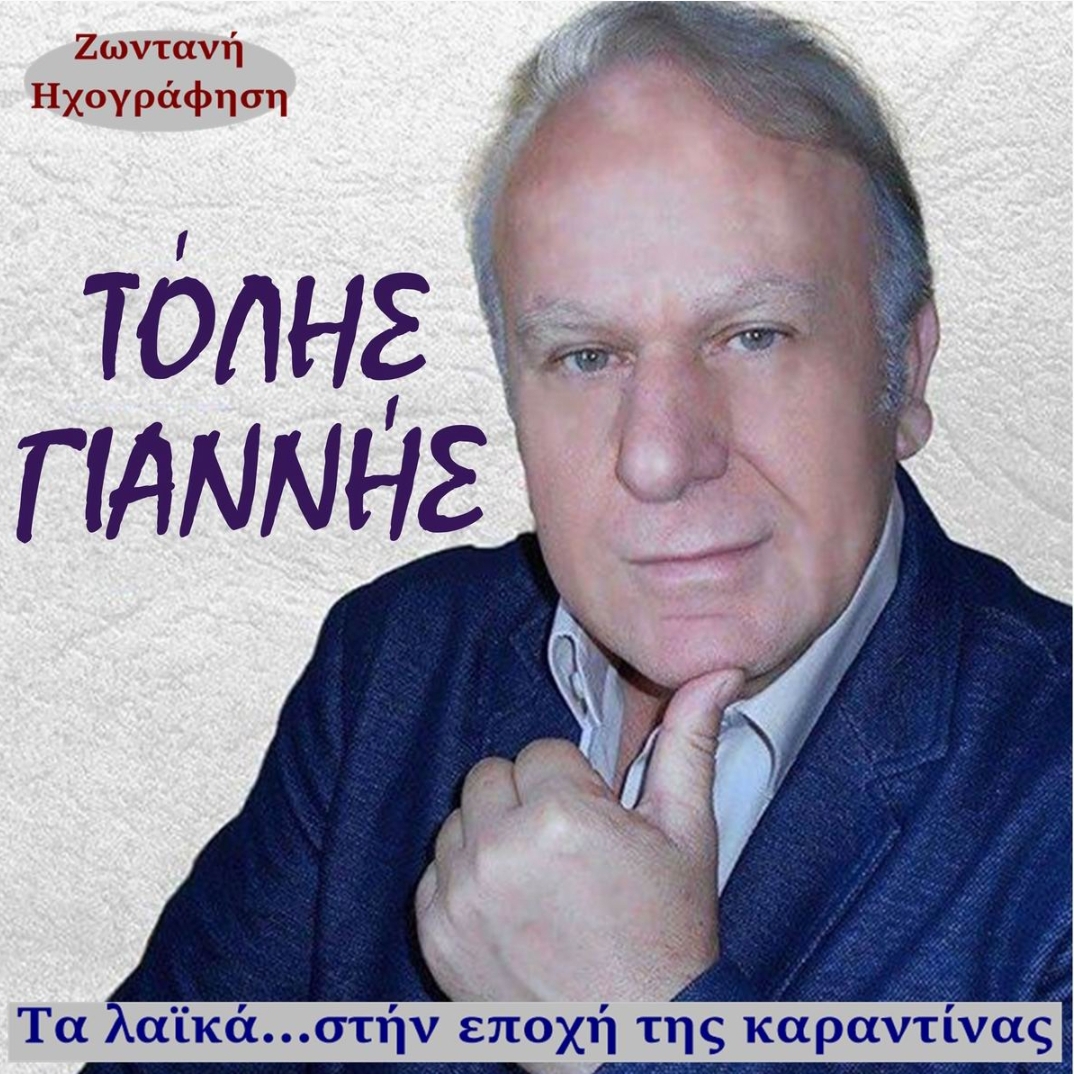Επιμέλεια συνέντευξης: Εύα Πετροπούλου Λιανού
Μετάφραση: Alexander Kabishev
Alexander “Sero” Konkov, poet and musician born in 1986, Moscow. Graduate of the Faculty of Law of Lomonosov Moscow State University. He began his creative career in 2004 with writing poems and songs, joining the Order of the Dragon science fiction club. In 2008, he organized the folk-rock group “Children of the Roads”, which successfully performed at many Moscow and Moscow region festivals. Since 2011, he has been the ideological inspirer and one of the leaders of the creative association “ArcAnicA”, within which he is engaged in the voiceover of audiobooks and radio performances, as well as a musical project of the same name in the style of ancient Egyptian ambient (together with Anna Sesht and Valery Senmuth). Editor and proofreader of novels A.Seth (publishing houses “EKSMO” and “Ugram”). Participant of a number of archaeological expeditions to Egypt and Crimea. Published in the magazine “Aurora” 2022. Long list of the Forum-festival “Captain Gray” 2022. Curator of the Moscow branch of the festival “All Poetry” 2023.
Please tell us about yourself. Good afternoon,. Alexander “Sero” Konkov, poet and musician. Editor and proofreader of prose works and translations. Speaker and audio engineer of audiobooks. A novice archaeologist and Egyptologist. I have been doing creative work since 2004, so it can be considered almost 20 years ago. Mostly in the musical part. For as long as I can remember, music has always surrounded me (from classical to hard rock), starting from my earliest childhood, so it was only a matter of time before I picked up a guitar and tried my hand at this field on my own.
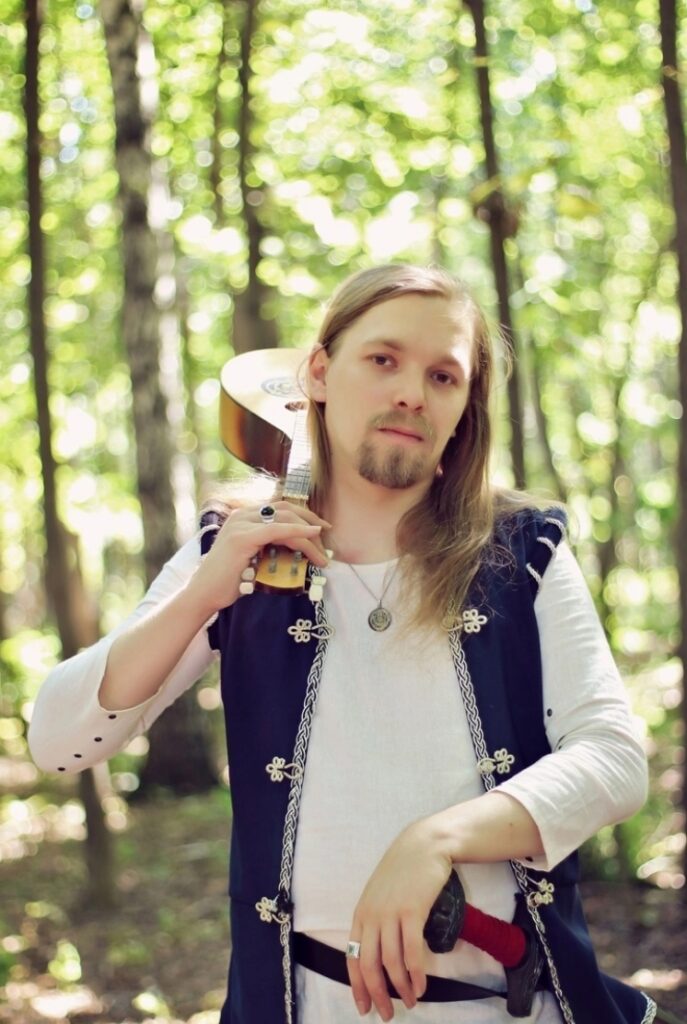
Why is your nickname “Gray”? Siro, with an “e”. =) It so happened that at school age I became interested in the works of Professor J.R.R. Tolkien. And since the school was with a philological bias, I could not bypass the linguistic component of the world invented by the Professor, and plunged headlong into the study of it. A little later I learned about the existence of a subculture of “Tolkienists” and joined them. Within the subculture, it is customary to address each other not by passport names, but by the fictional name of the character with whose image you associate yourself, and since in my distant youth I was very attracted to the images of elves described by the Professor, it was decided to choose the name “elven”. The name was long, difficult to pronounce, and even more difficult to remember (hardly anyone, except for quite “ancient” supporters of the subculture, is currently able to reproduce it). Therefore, for the convenience of communication, during communication, it was shortened to two syllables formed from the root “Sereg”, which in Sindarin (one of the Elvish languages developed by the Professor) means “blood”. In my youth, I was a very belligerent character.). And here, as a person who is passionate about philology, it was very interesting for me to follow how the names are shortened from the “official” to the “everyday” version. By analogy with how the name “Alexander” in Russian turned into “Sasha” (or into “Alex”, “Lexi” in the Western variation), “Morseregruin” turned into “Sero”, and so it stuck.
What is your role at the Vsempoesia Festival? Within the framework of this festival, I act in two roles – at the local level, I am the curator of the festival in Moscow, one of the largest cities of the festival; at the global level, I provide legal advice to the organizational team of the festival and legal support of the event as a whole.
Are you more of a poet or a musician? More, of course, a musician. Initially, I perceived my poetry solely as a textual component for songs, i.e. it was subordinated to a completely specific purpose and was created precisely in fulfillment of it. Therefore, my texts often use techniques that are acceptable and even desirable for rock poetry, but are considered “wrong” from the point of view of classical poetry. If “professional” poets create their works relying, first of all, on the clarity of rhyming, then for me the basis is always the rhythmic drawing of the text. You can say that I write under a metronome that constantly sounds in my head. Professional deformation of a rhythm guitarist, and there’s no getting away from it.) Recently, of course, I have begun to pay more attention to the poetic part of my work, to the improvement of technique and, if I may say so, “poetic mastery” under the guidance of S.A.Danilova. However, the musical component in my work prevails and, I dare to hope, will prevail.
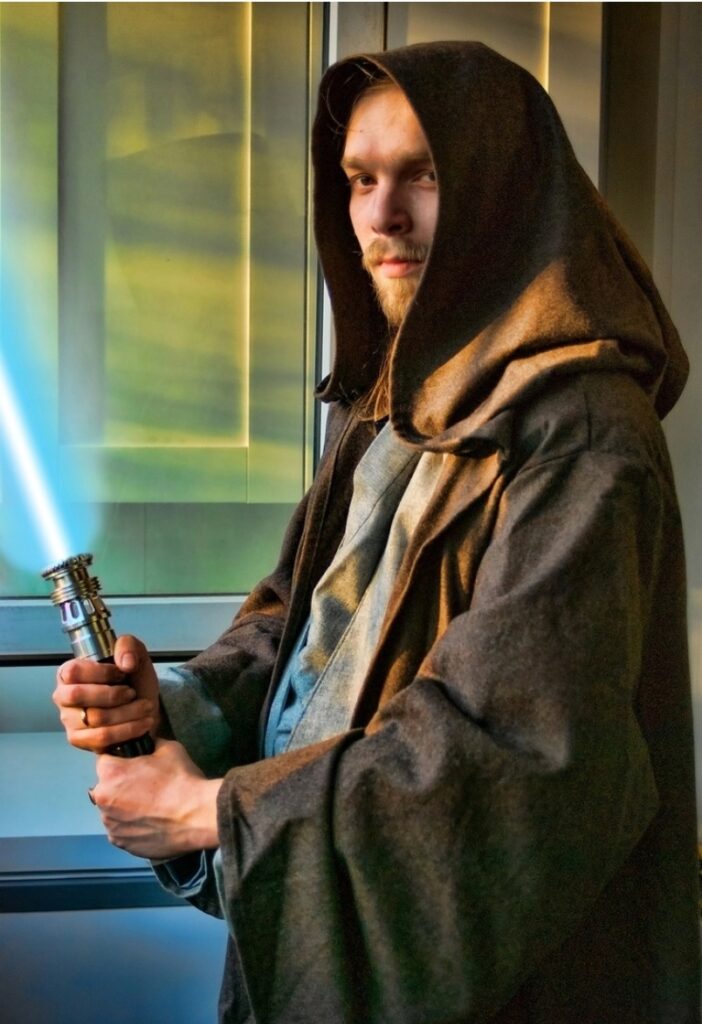
Tell us about the program “Bridges, lighthouses and roads”. This program, created in collaboration with S.A.Danilova, is a musical and poetic performance. A duet performance created in the synthesis of my songs and poems with the poems of Danilova. The main idea and point of interest of this program is its uniqueness – there have not been and cannot be two identical productions of it. Despite the presence of certain “reference points”, within the framework of the program we always leave a fairly wide degree of freedom and improvisation. Specific the poetic and song content of each of the concerts within the framework of it depends on many factors (starting from current events in the world and ending (conditionally) with which bus I arrived at the concert venue). Of course, the main factor is the mood of our audience and each listener individually. Our goal is to weave a unique canvas from fairy-tale songs and poems within each individual production, reflecting this particular evening and this particular audience. Tomorrow’s concert will never be like yesterday’s. The relevance of this concept is confirmed by the interest of the audience. As of now, concerts of the Bridges, Lighthouses and Roads project have been held in a number of Russian cities, including Moscow, St. Petersburg, Sochi, with invariably full halls, ranging from art clubs to central libraries.
What projects in Russia are you a resident of? If we talk about music, there are two main projects. The oldest of them is “Children of the Roads”, my first folk-rock band, existing since 2008. I am grateful to this project for the invaluable stage experience and a well-spent rock and roll youth. At the moment, the project has been put on pause by me due to a significant decline in the audience’s interest in folk rock in relation to that of the sample of the late 00s and early 10s. However, a number of works created specifically within the framework of this team still form part of the core of my creativity in the framework of solo activities.
“ArcAnicA” is an experimental ethnic ambient metal band created in collaboration with the beautiful singer Wervolka, the owner of a unique vocal talent that allows her to perform parts in the widest range from contralto to soprano. The project is being implemented in cooperation with one of the most talented composers of our time – Valery Senmuth. Within the framework of ArcAnicA, we mainly focus on the aesthetics of Ancient Egypt, its mythology, history, and modern archaeological discoveries. We try to give individuality to each composition not only from the point of view of the musical and poetic component, but also by weaving unique materials into it, starting with vocal inserts recorded specifically for the purposes of the single in the acoustics of a real Egyptian pyramid in Dahshur, to the inclusion of excerpts of sacred texts independently translated from the ancient Egyptian language. This project deliberately does not have a stage embodiment, but it has already managed to prove itself, which is confirmed by high positions in the profile charts – our single “Neheh Djet” took the 6th line at the end of 2021 according to the authoritative website masterland.org , surpassing even such masters of heavy music as “Epidemic” and the infinitely talented Elena Minina and her “Gioconda”. Within the framework of the organization of musical and poetic events and projects, the following can be distinguished:: The above-mentioned festival “Vsempoezii”, covering more than 35 cities in Russia and abroad. The festival of poetry and Acoustic rock, whose permanent leader and ideological “father” is one of the classics of modern poetry, Vlad Pavlovsky, I will not be afraid of this term. If we talk about literary and near-literary activities, then we should separately mention the creation of audiobooks and radio performances, in which I have the pleasure and honor to take part as an announcer and sound engineer. Of the main projects and releases in this field, I would note the following: “The Mists of Avalon” based on a series of books by M.Z. Bradley (artistic director N.Belyaeva), audio embodiment of a series of books by A.Sesht and H.Vodjik “Ring of Times”, as well as A.Sest’s novelty “Call of the Wild Hunt”, the audio version of which is being prepared for release on the main electronic platforms of Russia “Eksmo” and “Litres” at the time of writing this article.
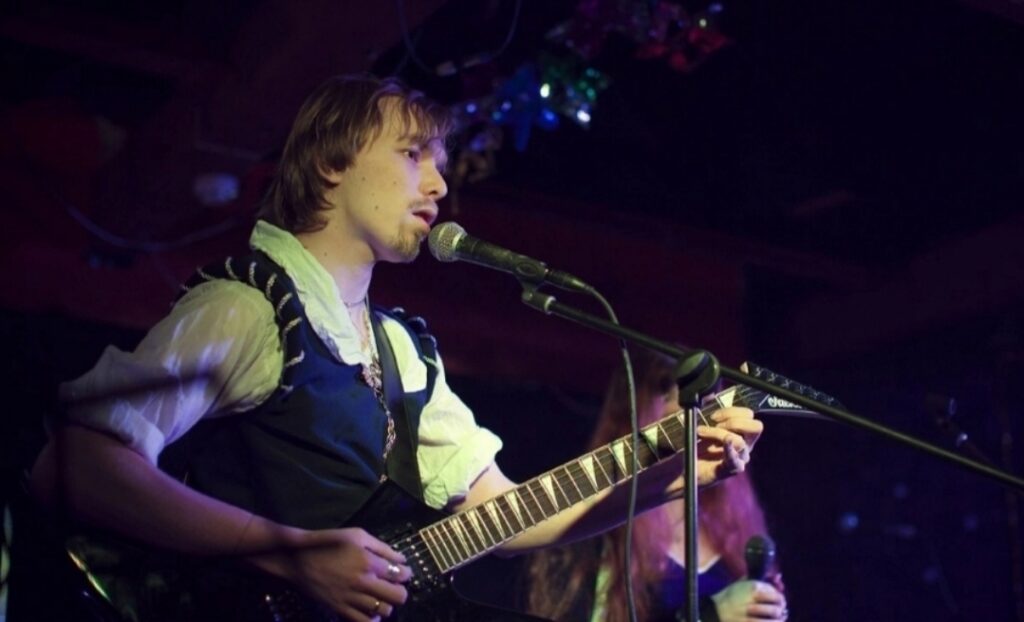
Which cultures did you happen to meet and cooperate with in the future? My area of interest covers a fairly wide range of cultures and eras in which I am looking for inspiration for works. First of all, it is finite oh, the culture and religion of Ancient Egypt (whose hobby is being implemented within the framework of the aforementioned ArcAnicA project). I have also been deeply and for a long time interested in the culture of ancient Scandinavia of the Viking age, the pre-Christian culture of Slavic tribes and nomadic peoples (Scythians, peoples of Siberia). A separate line is worth mentioning the fascination with Celtic culture and the history of the ancient peoples of the British Isles. I am also interested in the period of medieval Western European (mainly French) history, which falls on the origin, dawn and sunset of the religious movement of the Cathars. He took part in a number of archaeological expeditions in Egypt and Crimea. Unfortunately, it is impossible to cooperate with representatives of any of the aforementioned cultures in the modern world, for obvious reasons. However, they have had and continue to have a direct impact on my work, finding certain reflections in poems and songs.
Do you have a favorite author? Why him/her? I prefer not to limit my choice to the division into “favorite” and “unloved” authors. I don’t have the latter.) If we talk about the fantasy subgenre of fantastic prose, then, of course, Mikhail Bulgakov should be singled out (yes, I think “The Master and Margarita” is almost the first and definitely the best (if not the only) Soviet fantasy, even though such a genre did not exist at the time of Mikhail Afanasievich), John Tolkien, Ann McCaffrey, Catherine Kurtz, Ann Bishop, Clive Barker, Anna Sest – for me these names are approximately equivalent and are the authors of masterpiece canvases, which, no doubt, will replenish (and many have already replenished) the list of classics of world literature. It is also necessary to say separately about the masters of fiction of varying degrees of “scientific”. Of course, this list includes Arkady and Boris Strugatsky, but it also contains more “specific” authors like William Gibson (whom I consider almost a modern Jules Verne in terms of his talent for “predicting” future events and scientific discoveries), Philip K. Dick, as well as Richard Morgan. My separate guilty pleasure are the works of Donacien Alphonse Francois de Sade, filled with a completely unusual for a modern reader, but therefore no less profound philosophical meaning and numerous layers of meanings.
Of my favorite classical poets, I can single out Charles Pierre Baudelaire, Thomas Moore (Pushkin, Lermontov, Fet, Tyutchev and others are intentionally absent from this list, because the love of any Russian person for them is obvious and does not require a separate indication). If we talk about more modern authors, then this is, without a doubt, Vladimir Semyonovich Vysotsky, Joseph Alexandrovich Brodsky, Yuri Iosifovich Vizbor, Aron Yakovlevich Krupp, Alexander Moiseevich Gorodnitsky, Vlad Pavlovsky, Felix Yasnevsky, Stefania Danilova – here you can continue indefinitely.)
Why engage in art and literature in the modern world? To make this world brighter, happier and better in all its manifestations. I am a supporter of the idea that art, and any creativity in general, should perform not only and not so much an entertainment function as an educational, enlightening one. If, after reading a book, listening to a music album, watching a movie or a play, I did not take anything new out of this work for myself, did not think about anything that had not previously touched my thoughts, and was not interested in any aspect/history/term at least to the extent to open Google and to find what you can read about it is an empty work. Or, at least, it is empty specifically for me.



